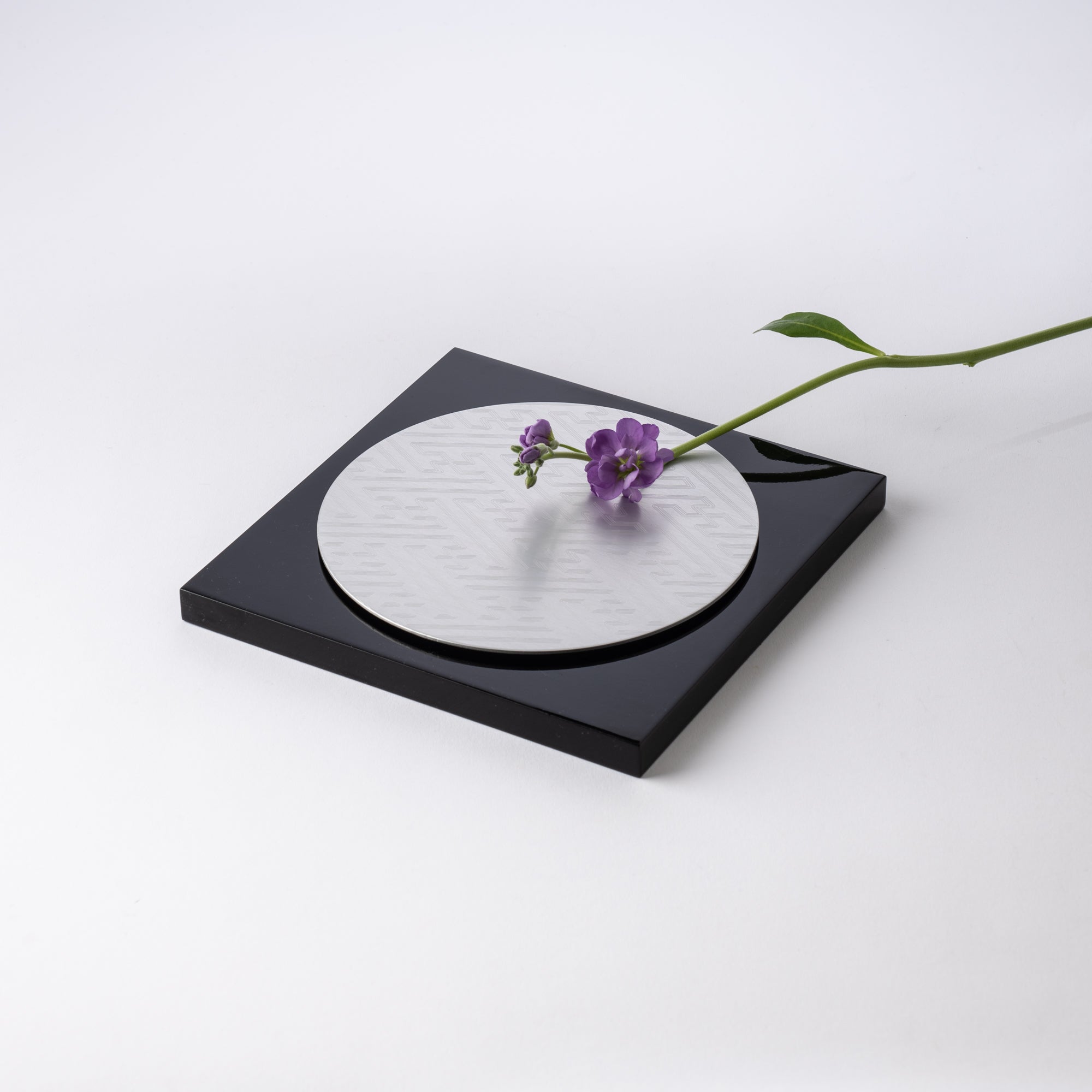
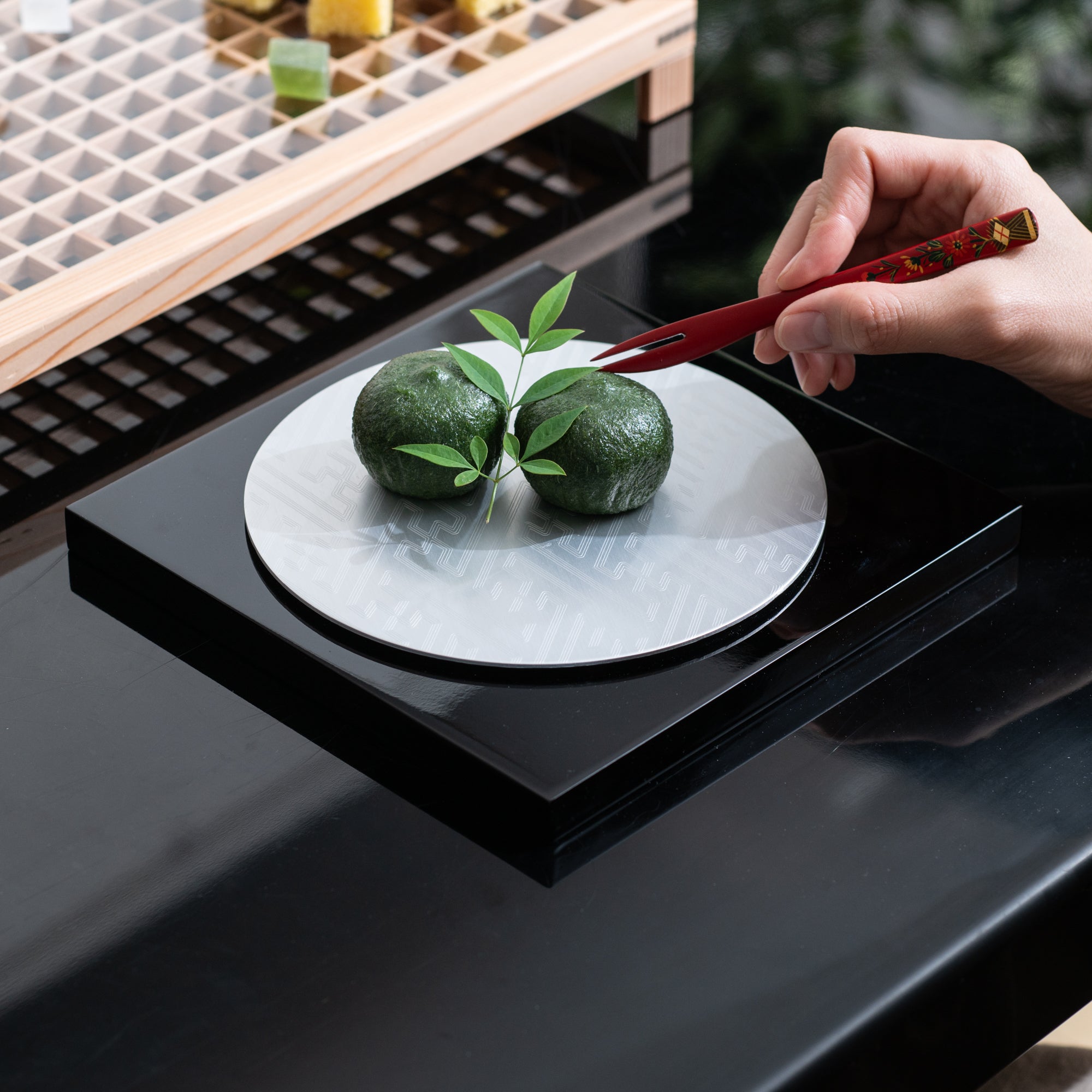
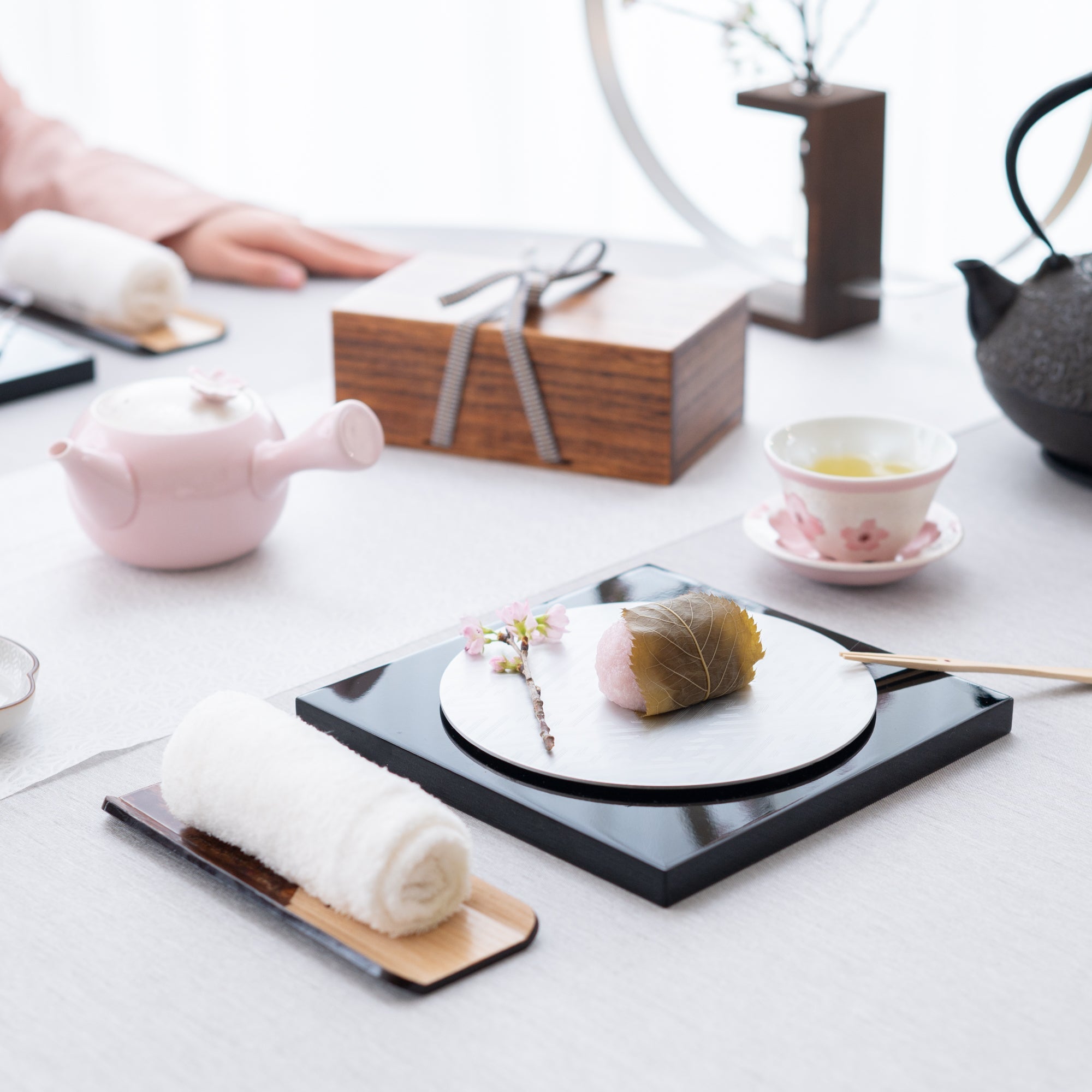
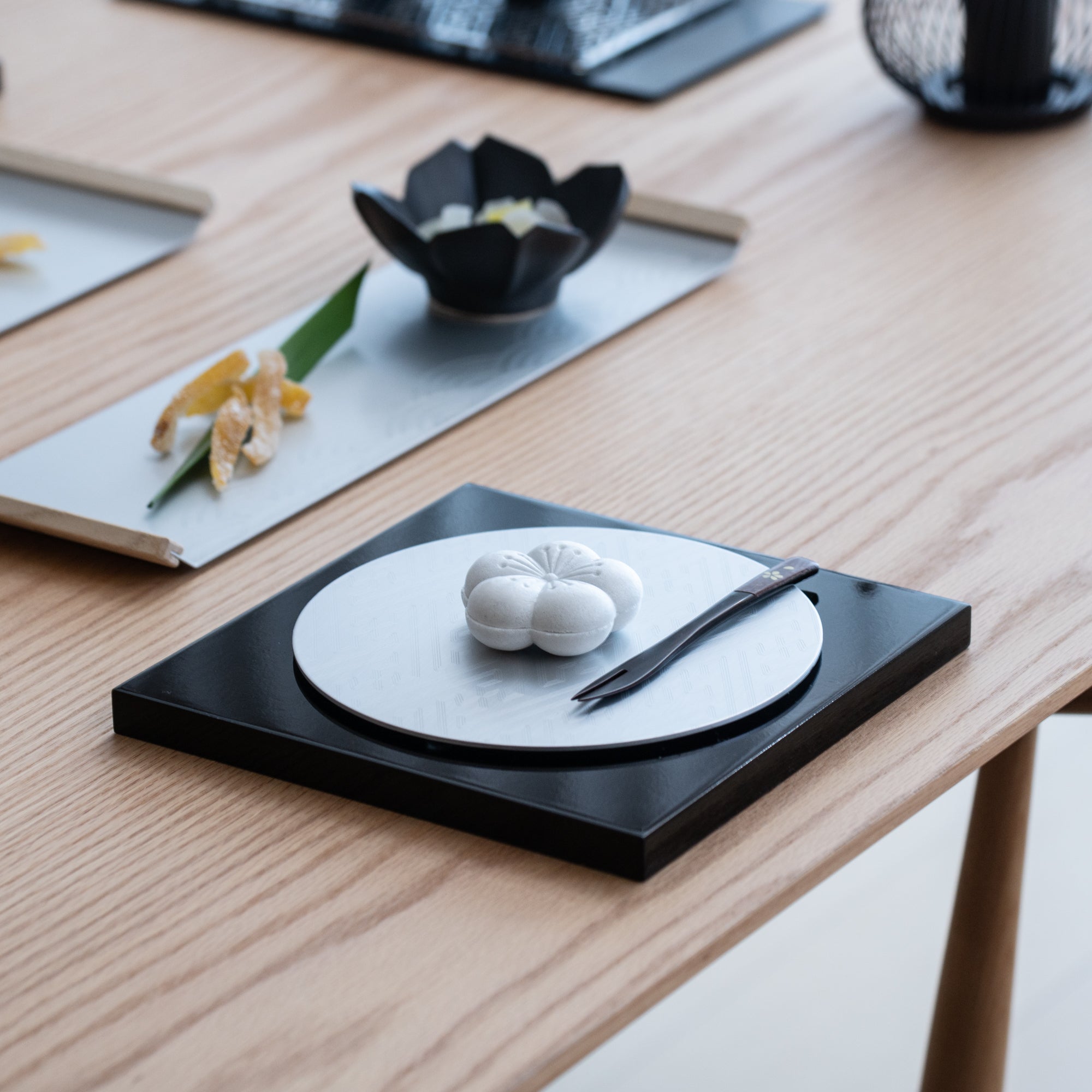
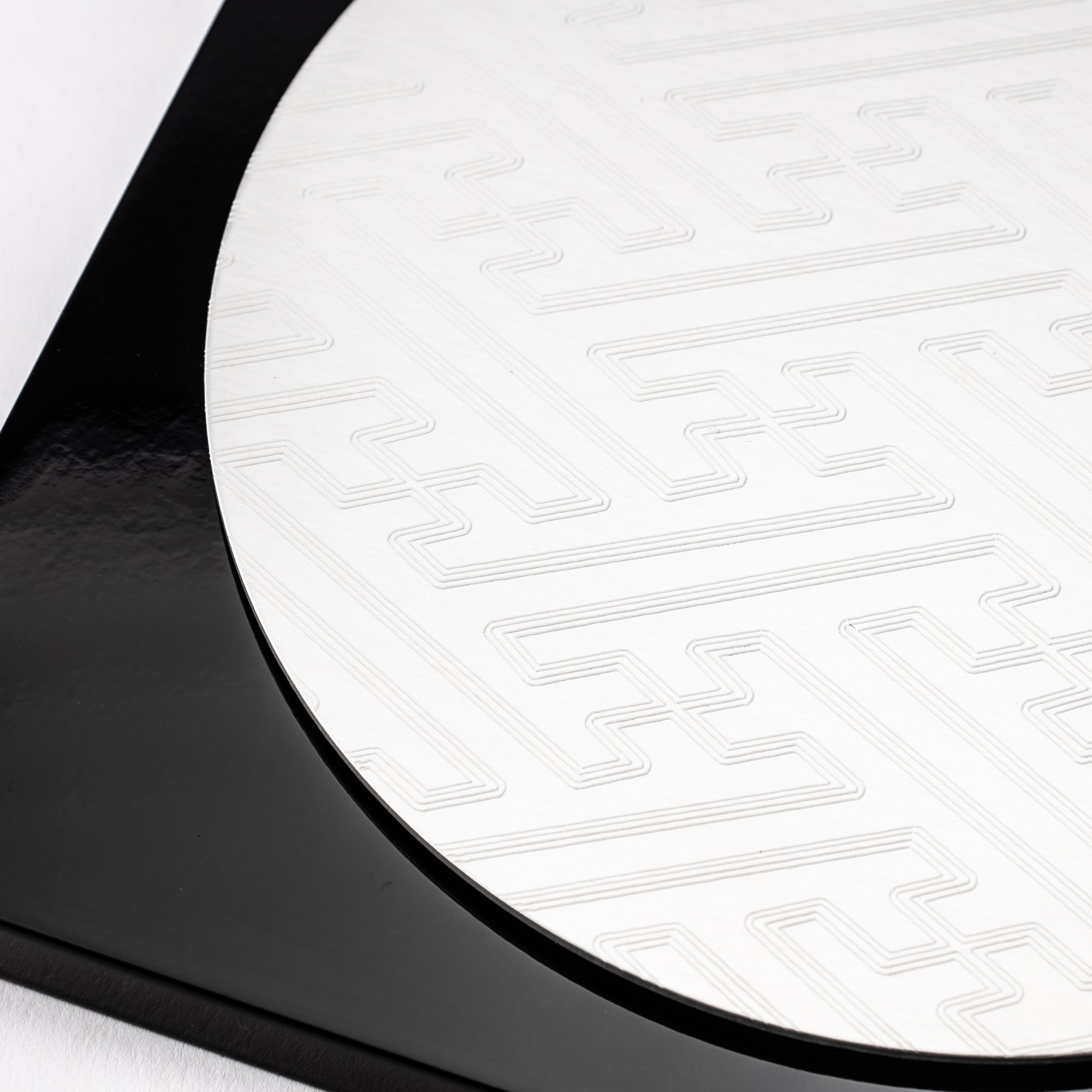

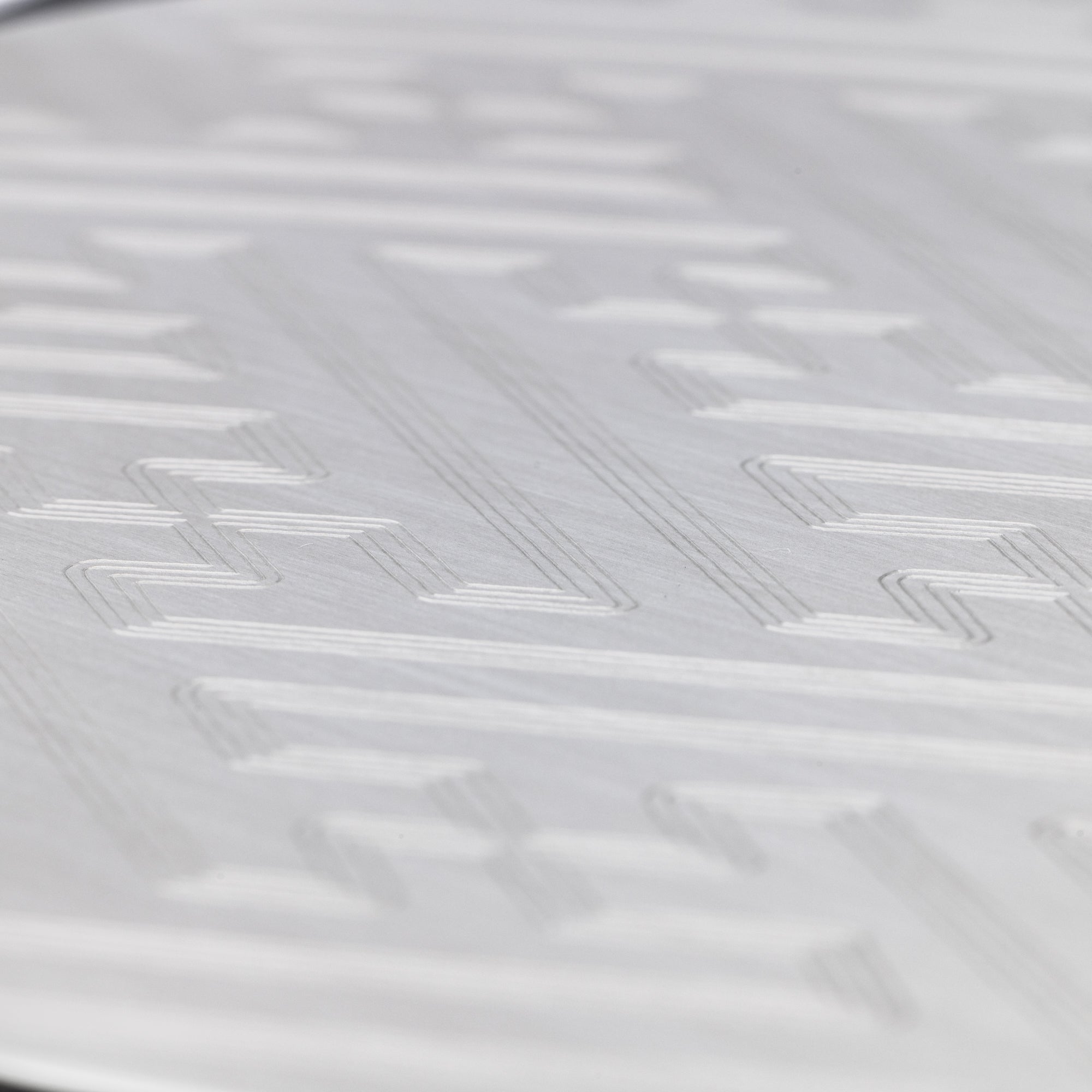
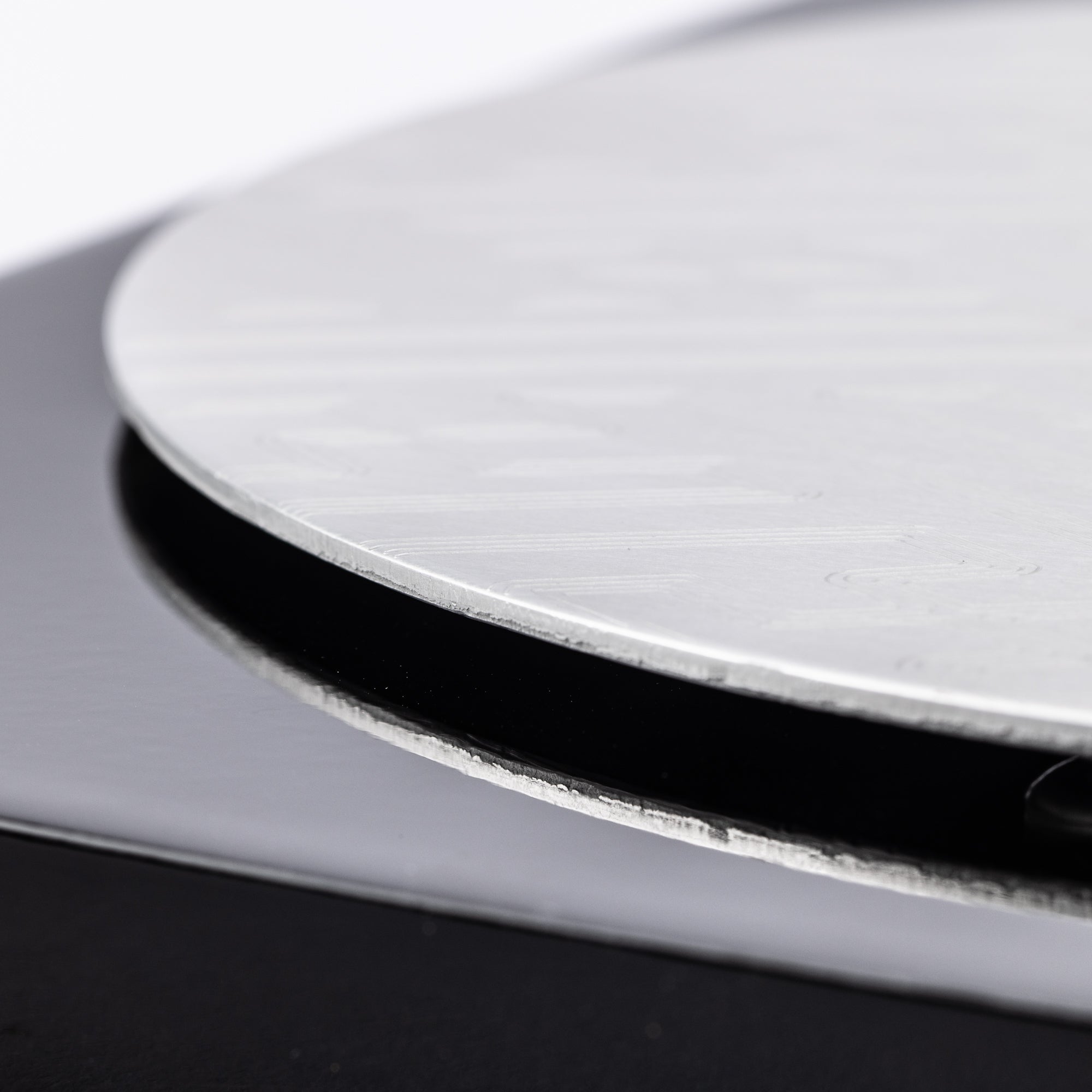
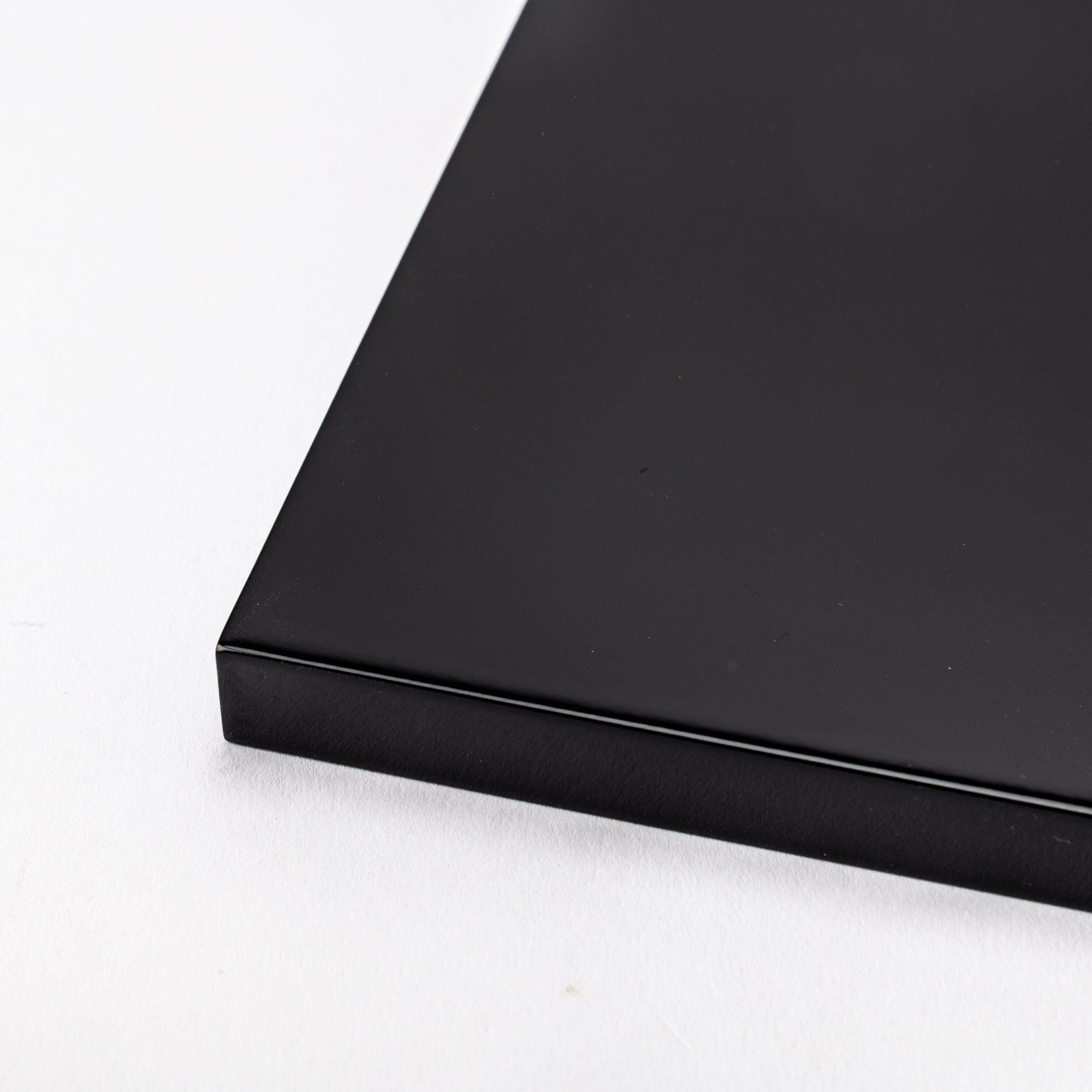
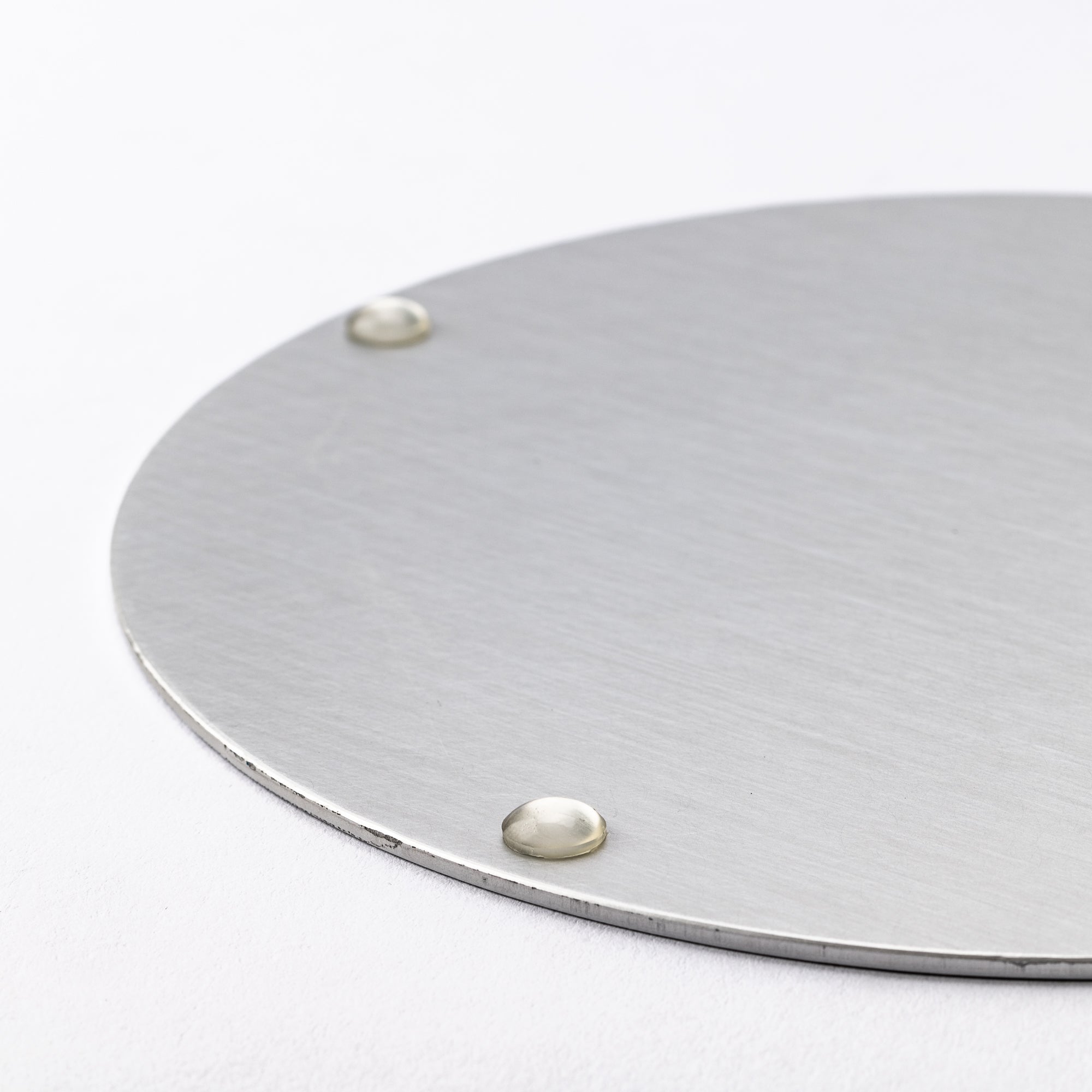
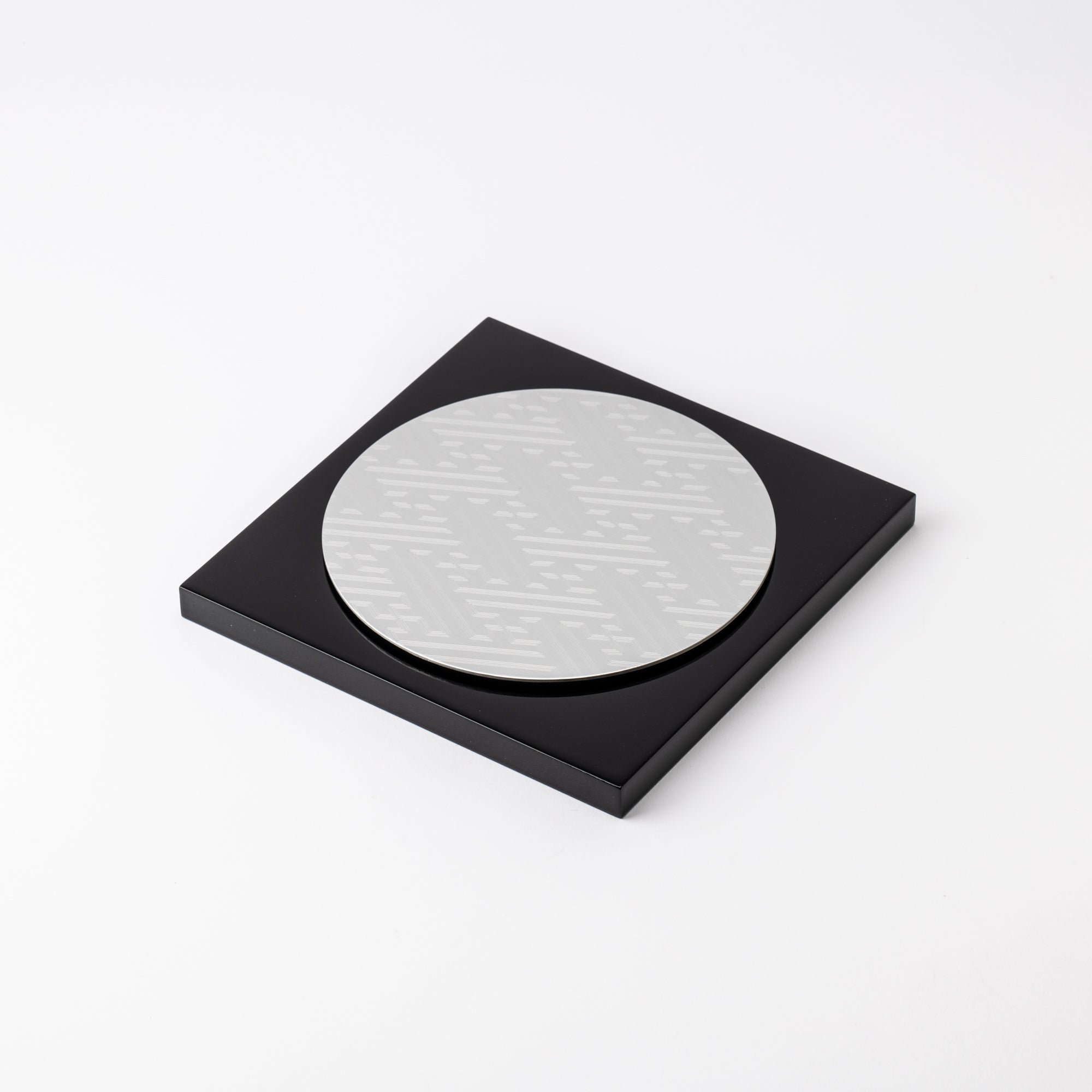
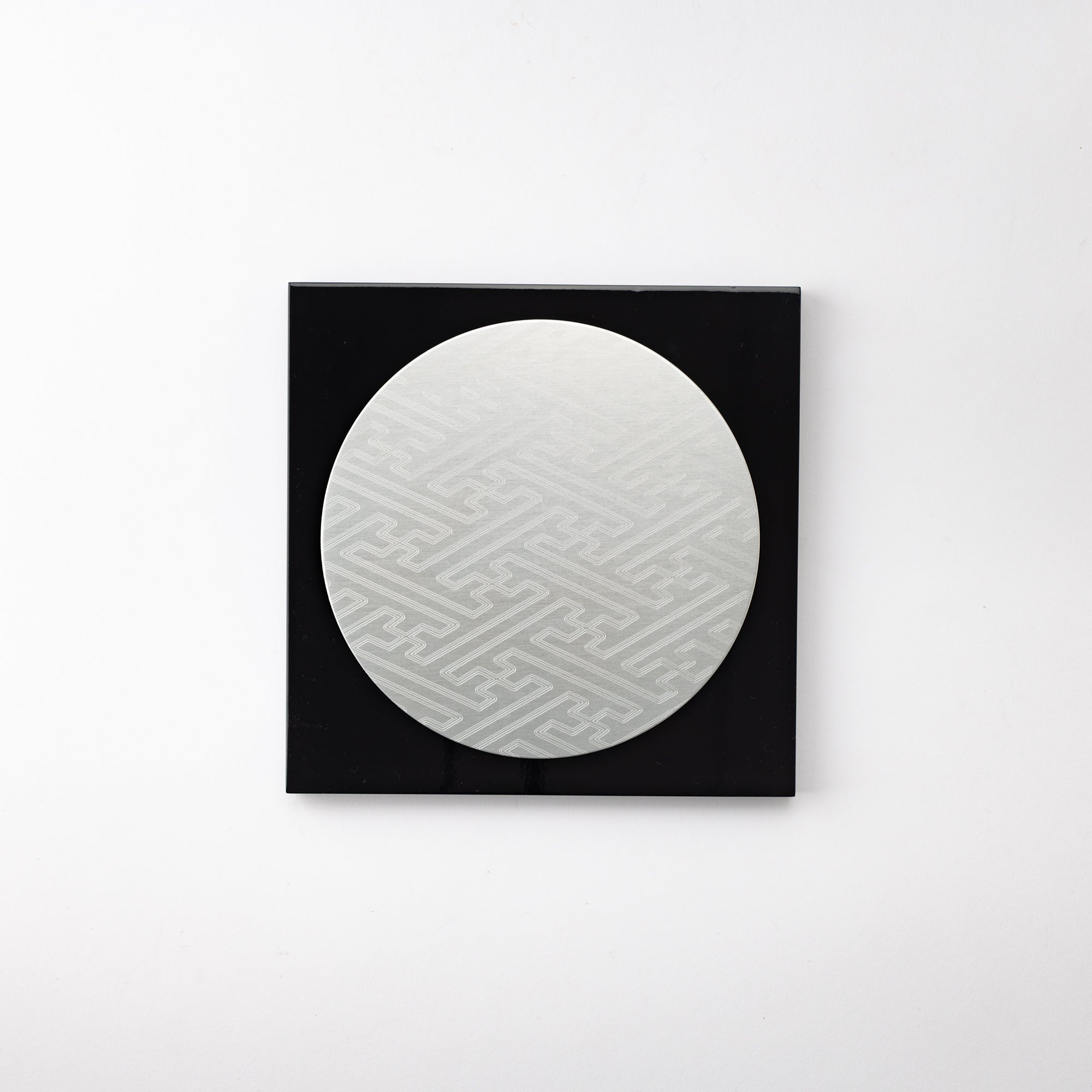
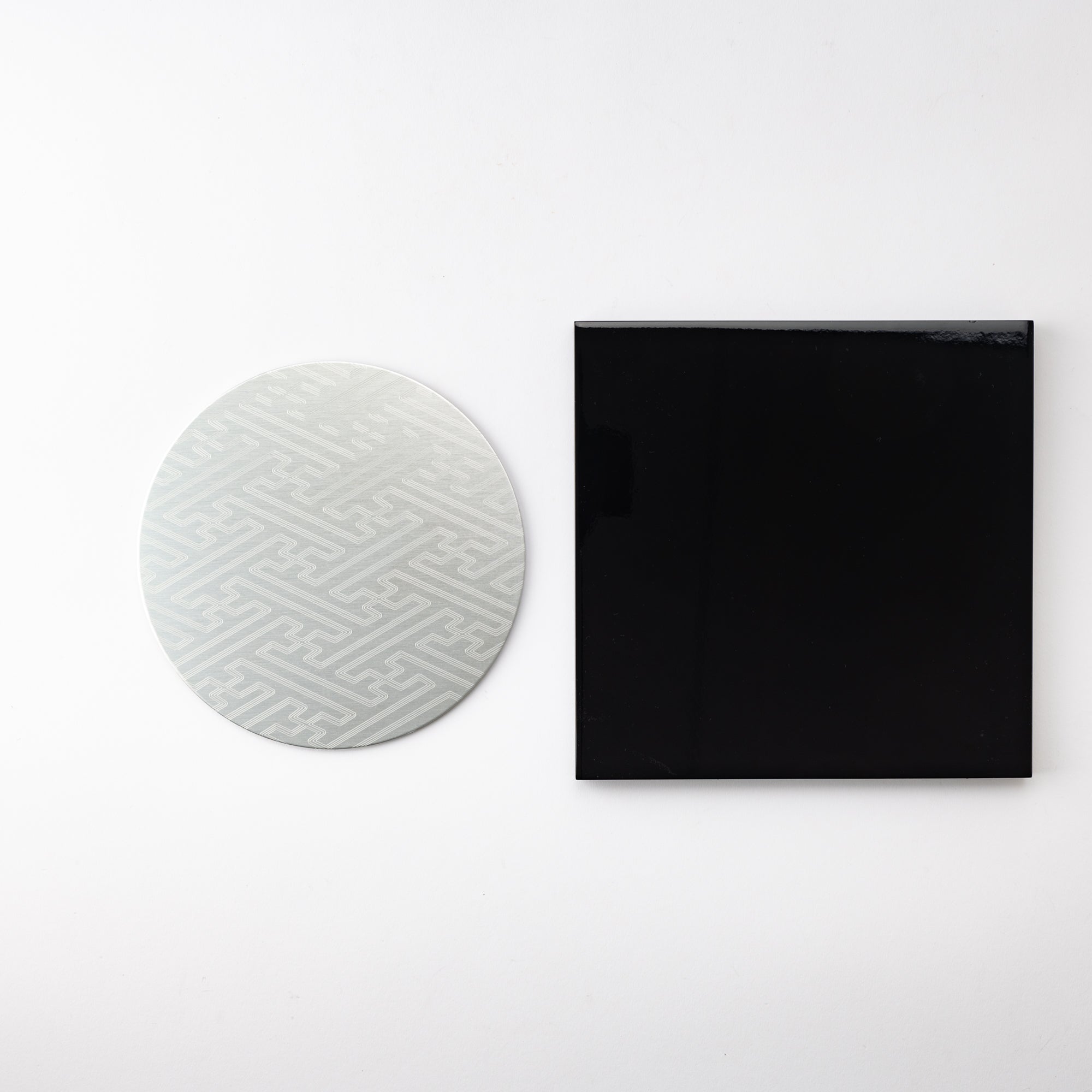
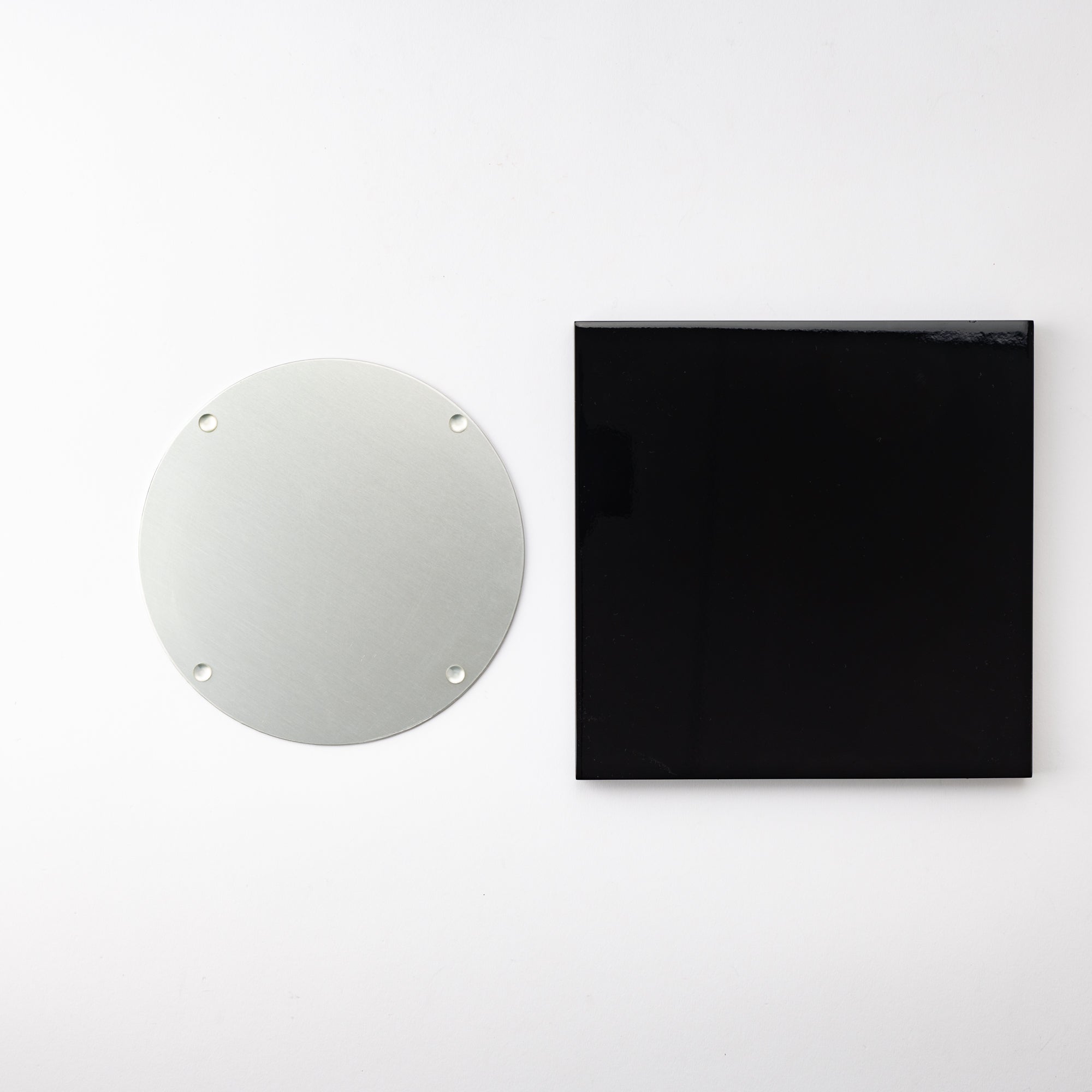
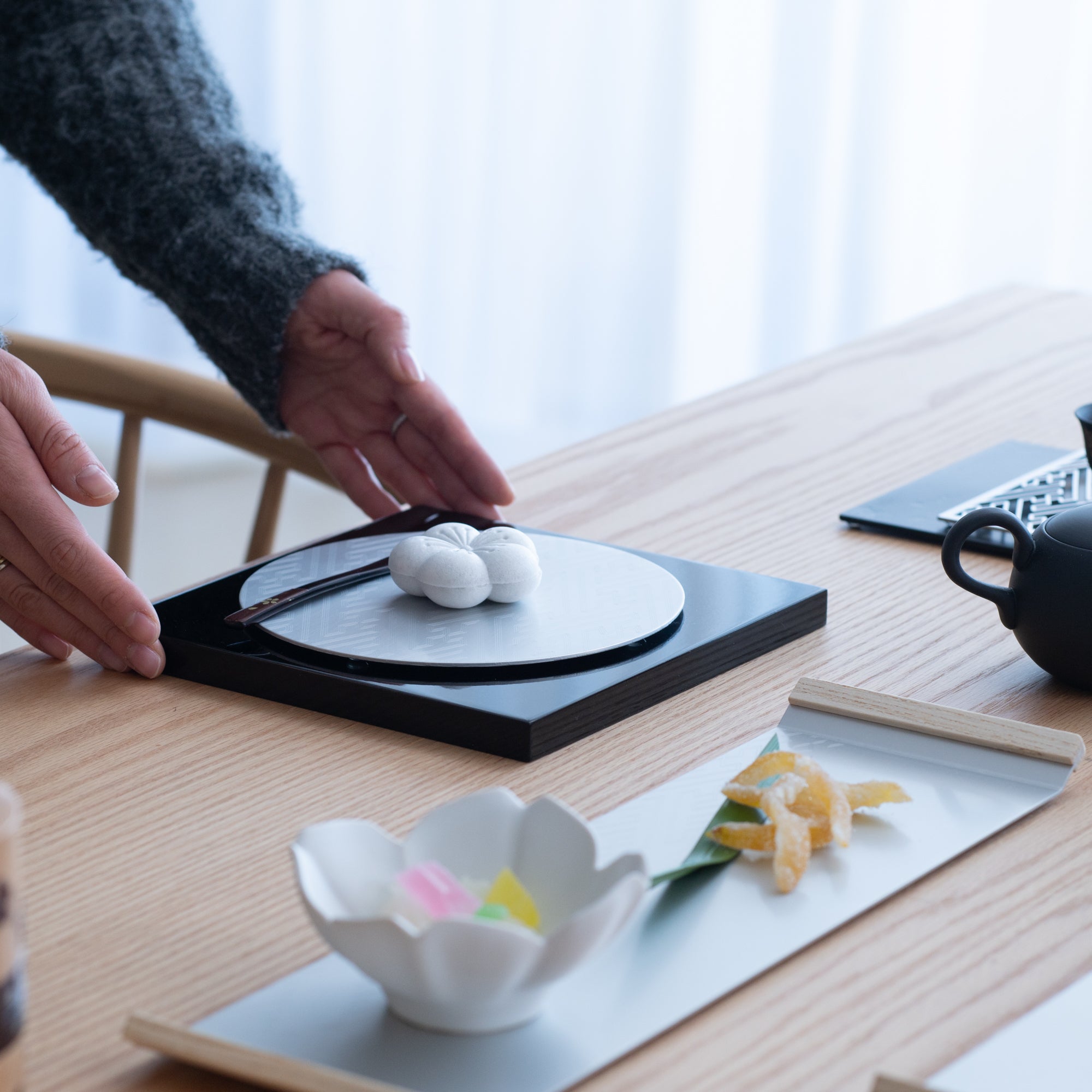
Sayagata Pattern Aluminum and Lacquerware Serving Tray
Estimated Shipping Widget will be displayed here!
This serving tray is the result of a collaboration between a matte, subdued aluminum tray and a deep, moist Echizen lacquerware tray.
"Sayagata" is one of the auspicious patterns meaning prosperity and longevity of a family. It is a diagonal overlay of the Sanskrit character for Manji (Buddhist cross).
It can be used as a serving tray for appetizers or Japanese sweets. In addition, the lacquer and aluminum trays can be used separately, so they can be used in a wide range of ways to match the atmosphere of your table.
Four round urethane rubbers are attached to the back side of the aluminum plate to prevent slipping, scratches on the table, and to make it easier to lift.
DETAIL
| Quantity | 1 Aluminum serving tray and 1 Lacquerware tray (base) |
| Size |
[Aluminum serving tray] D 17 cm (6.7 in) x H 0.2 cm (0.1 in) [Lacquerware tray] 20 cm (7.9 in) x 20 cm (7.9 in) x 2.3 cm (0.9 in) |
| Material | Aluminum, Lacquer |
| Microwave | No |
| Dishwasher | No |
Maker / Brand / Series
Origin
Notes
Choose options















Estimated Shipping Widget will be displayed here!
Trays and Placemats
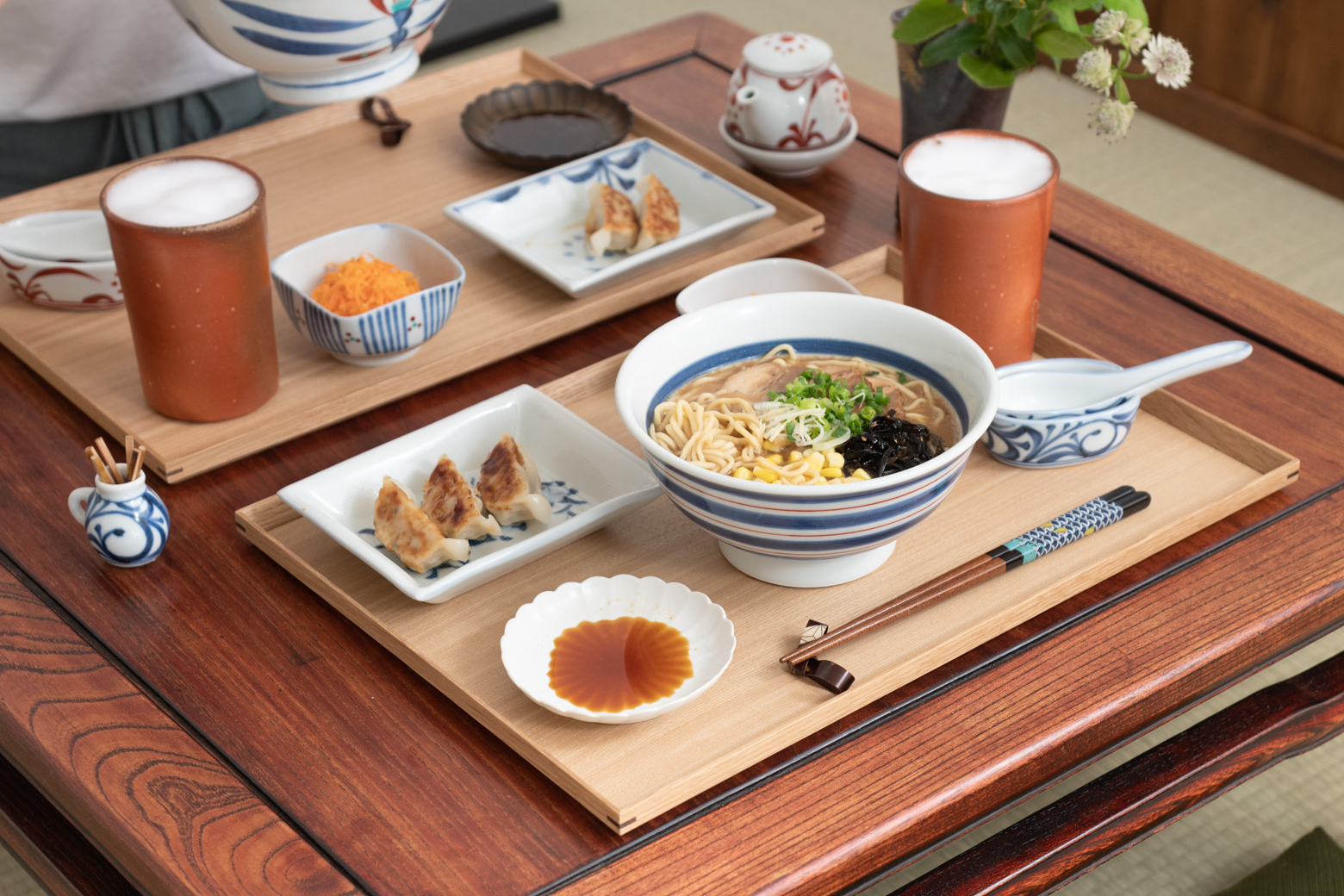
Guide for Japanese Trays & Placemats
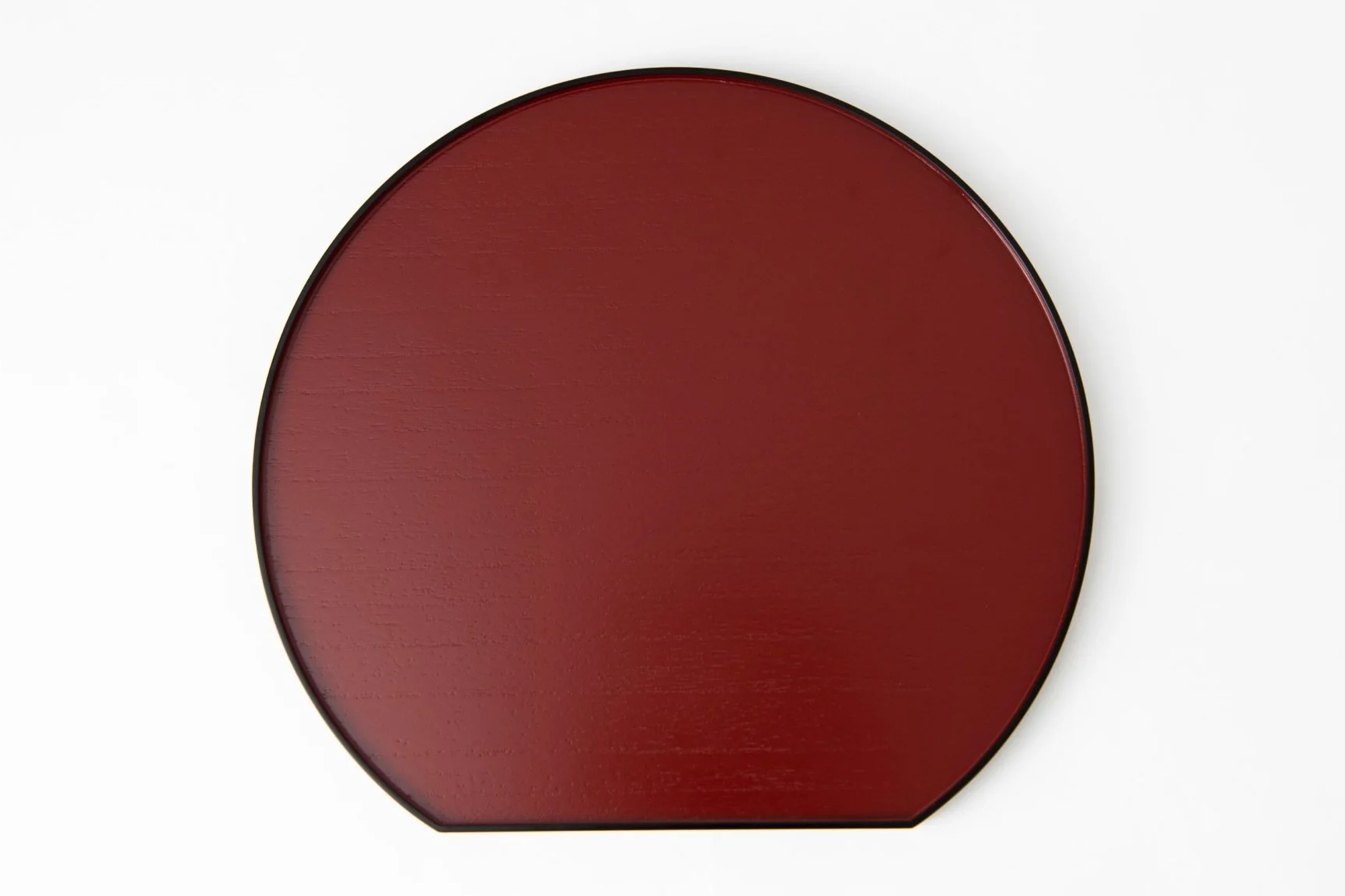
International Shipping
Multiple shipping options available, with discounted shipping for orders over 500000 and free shipping over 5000000.
Insured shipping service
Full compensation for any accidental damage that may occur during transit.
Made by Japanese craftsmen
Fair prices plus free furoshiki wrapping with every order.

